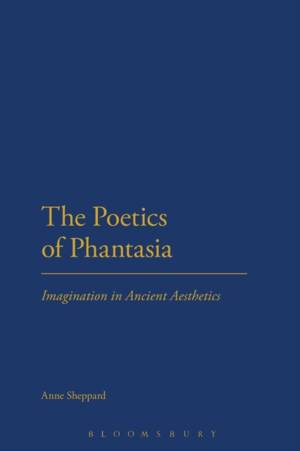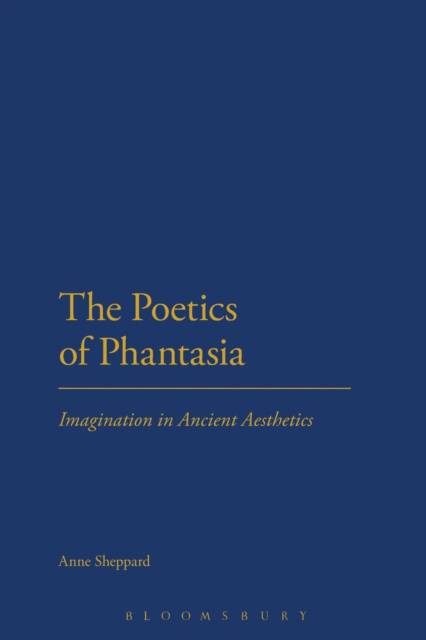
- Retrait gratuit dans votre magasin Club
- 7.000.000 titres dans notre catalogue
- Payer en toute sécurité
- Toujours un magasin près de chez vous
- Retrait gratuit dans votre magasin Club
- 7.000.0000 titres dans notre catalogue
- Payer en toute sécurité
- Toujours un magasin près de chez vous
88,45 €
+ 176 points
Format
Description
With a thorough examination of ancient views of literary and artistic realism, allegory and symbolism, The Poetics of Phantasia brings together a study of the ways in which the concept of imagination (phantasia in Greek) was used in ancient aesthetics and literary theory.
The Greeks and Romans tended to think of the production of works of art in terms of imitation, either of the world around us or of a transcendent ideal world, rather than in terms of originality and creativity. Study of the way phantasia is used in ancient writing about literature and art reveals important features of the ancient approach to the arts and in doing so will also shed light on modern concepts of imagination and the literary and artistic differences between realism and allegory.
Covering a range of literary and philosophical material from the beginnings of Greek literature down to the Neoplatonist philosophers of late antiquity, The Poetics of Phantasia discusses three discrete senses of imagination in ancient thought. Firstly, phantasia as visualization is explored: when a writer 'brings before his eyes' what he is describing and enables his audience or reader to visualise it likewise. The second theory of phantasia is that which is capable not only of conveying images from sense-perception but also of receiving images from intellectual and supra-intellectual faculties in the soul, and thus helping people grasp mathematical, metaphysical or even mystical concepts. Finally, phantasia is seen as a creative power which can conjure up an image that points beyond itself and to express ideas outside our everyday experience.
The Greeks and Romans tended to think of the production of works of art in terms of imitation, either of the world around us or of a transcendent ideal world, rather than in terms of originality and creativity. Study of the way phantasia is used in ancient writing about literature and art reveals important features of the ancient approach to the arts and in doing so will also shed light on modern concepts of imagination and the literary and artistic differences between realism and allegory.
Covering a range of literary and philosophical material from the beginnings of Greek literature down to the Neoplatonist philosophers of late antiquity, The Poetics of Phantasia discusses three discrete senses of imagination in ancient thought. Firstly, phantasia as visualization is explored: when a writer 'brings before his eyes' what he is describing and enables his audience or reader to visualise it likewise. The second theory of phantasia is that which is capable not only of conveying images from sense-perception but also of receiving images from intellectual and supra-intellectual faculties in the soul, and thus helping people grasp mathematical, metaphysical or even mystical concepts. Finally, phantasia is seen as a creative power which can conjure up an image that points beyond itself and to express ideas outside our everyday experience.
Spécifications
Parties prenantes
- Auteur(s) :
- Editeur:
Contenu
- Nombre de pages :
- 136
- Langue:
- Anglais
Caractéristiques
- EAN:
- 9781474257596
- Date de parution :
- 24-09-15
- Format:
- Livre broché
- Format numérique:
- Trade paperback (VS)
- Dimensions :
- 156 mm x 234 mm
- Poids :
- 204 g

Les avis
Nous publions uniquement les avis qui respectent les conditions requises. Consultez nos conditions pour les avis.






